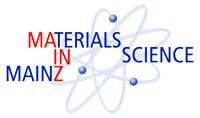


Physikalisches Kolloquium
Nov. 20, 2012 at
5 p.m. c.t.
in
Hörsaal des Instituts für Kernphysik, Becherweg 45
Prof. Dr. Alfons Weber
Institut für Physik
a.weber@uni-mainz.de
Prof. Dr. Hartmut Wittig
Institut für Kernphysik
hartmut.wittig@uni-mainz.de
Listening to the Universe - Science with low-frequency Gravitational Waves
Prof. Dr. Oliver Jennrich (ESA/ESTEC, AG Noordwijk, The Netherlands)
The direct detection of gravitational waves is one of the most challenging issues in today's astronomy. A number of efforts are underway aimed at extremely low frequencies (timescales of 109 seconds, with pulsar timing arrays), low frequencies (timescales of minutes to days, through space-borne gravitational wave detectors) and acoustic frequencies (through ground based detectors). Low-frequency gravitational waves are emitted by a number of astrophysical sources, such as coalescing massive black hole binaries at the center of merging galaxies, the inspiral of compact objects such as neutron stars into a massive black hole or binary systems consisting of compact objects. Along with the large number of source goes a rich scientific content from the formation of the earliest structures in the universe to the formation of our galaxy to the astrophysics of compact binary systems, precision tests of strong-field gravity, and measurements of dark energy.